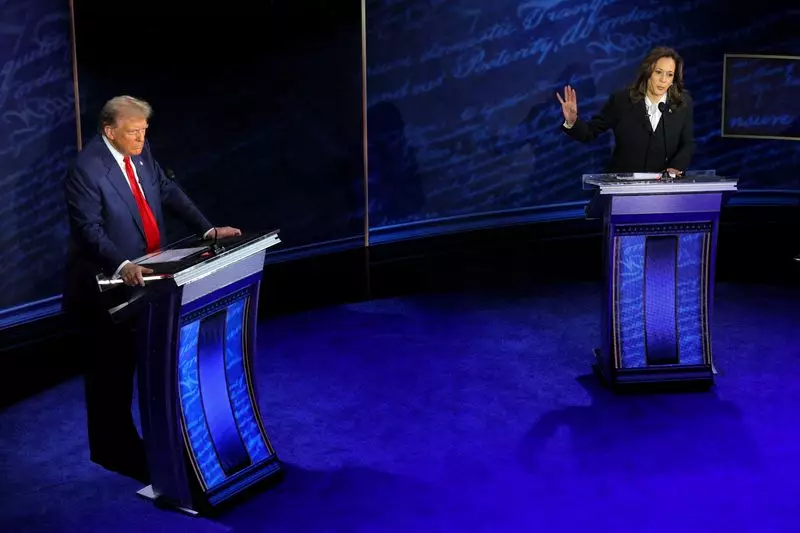The landscape of corporate investment is often influenced by external factors, and in the United States currently, the impending presidential election is casting a long shadow over financial decisions. As companies strive to navigate through an unpredictable economic and political environment, a recent survey reveals that a significant number of chief financial officers (CFOs) have reacted by postponing or scaling back investment plans. This article delves into the findings of a survey conducted by notable institutions, shedding light on the relationship between political uncertainty and corporate behavior.
According to a nationwide survey conducted by the Atlanta and Richmond Federal Reserve Banks in conjunction with Duke University’s Fuqua School of Business, approximately one-third of CFOs have cited the upcoming U.S. presidential election as a reason for delaying investment decisions. Out of 479 respondents, 21% indicated that their companies opted to postpone investments directly due to uncertainty associated with the election. Additionally, over 15% admitted to scaling back their investment plans, leading to a cumulative figure of 30% of firms being impacted in some way.
The survey results underscore a crucial point: corporate leaders are increasingly wary of the implications that the election outcomes may have on the economic landscape. The fears surrounding changes in leadership and policies can significantly affect business operations, prompting a cautionary approach among financial executives.
Despite these concerns, the overall mood among CFOs presents a paradox. A substantial 69% of respondents expressed optimism about their company’s prospects, and 60% remain hopeful regarding the broader U.S. economy. This outlook, relatively stable compared to previous quarters, suggests that, while political turbulence is causing hesitation, it has not wholly undermined confidence in the market.
However, the survey highlighted that firms most affected by election-related uncertainties appeared less optimistic about their financial future. These companies are disproportionately inclined to focus their investments on cost-reduction initiatives rather than on expanding capacity or replacing existing assets. This defensive strategy reflects a cautious mentality that may have long-term implications for corporate growth and economic expansion.
An interesting aspect of the survey is the insight it provides into the financial priorities of CFOs amid political uncertainty. Although the survey did not delve into partisan preferences regarding candidates, it did outline that regulatory policy, monetary policy, and corporate tax policy were the predominant concerns for CFOs. While 60% of respondents flagged regulatory issues, nearly 59% noted apprehensions regarding monetary policies, bolstered by the Federal Reserve’s ongoing efforts to manage inflation.
This pattern of concern illuminates the broader context of economic policy that CFOs are grappling with. With the Federal Reserve recently pivoting towards rate cuts, there may be shifts in investment sentiment that promote more aggressive financial strategies in the future. However, should the election yield an unexpected outcome, the response from CFOs may prompt further reconsideration of their financial strategies.
The interaction between corporate financial behavior and political events is complex and multifaceted. As the survey results suggest, although many CFOs remain optimistic, a significant portion are holding back investments. This hesitation is not trivial; it potentially signals a stagnation in economic growth during an already turbulent period.
Moreover, the repercussions of delayed investments can ripple through the economy, affecting not only corporate profitability but also employment rates and consumer confidence. As uncertainty regarding electoral outcomes looms, CFOs must grapple with balancing cautiousness against the need for growth.
While optimism persists among a majority of corporate leaders, the political climate’s tangible influence on investment strategies cannot be overlooked. Understanding the interplay between policy, economic expectations, and corporate investment decisions will be vital for navigating the post-election economic landscape. As the nation’s financial executives await the electoral verdict, the path forward remains uncertain, underscoring the intricate relationship between governance and corporate strategy.

